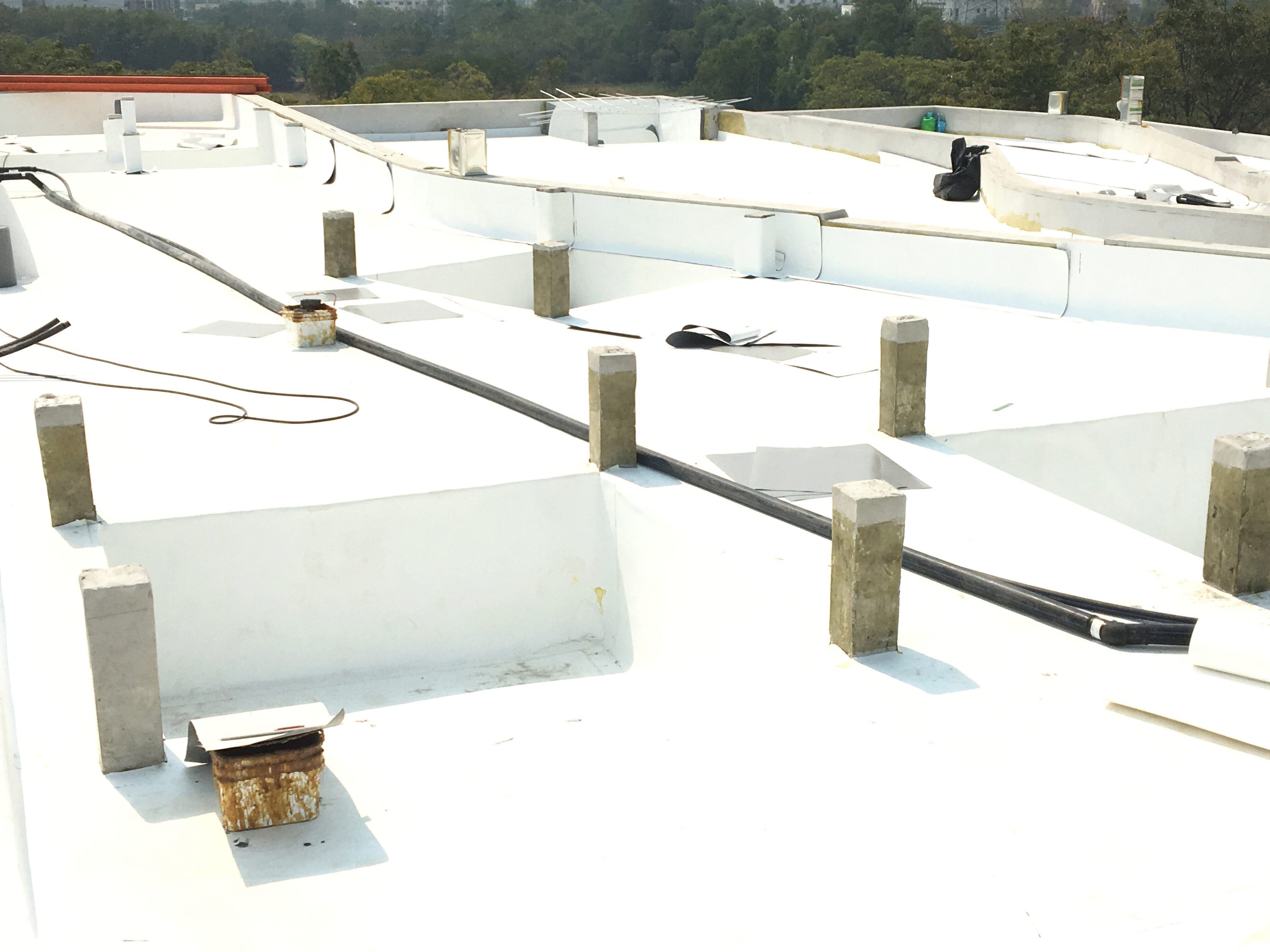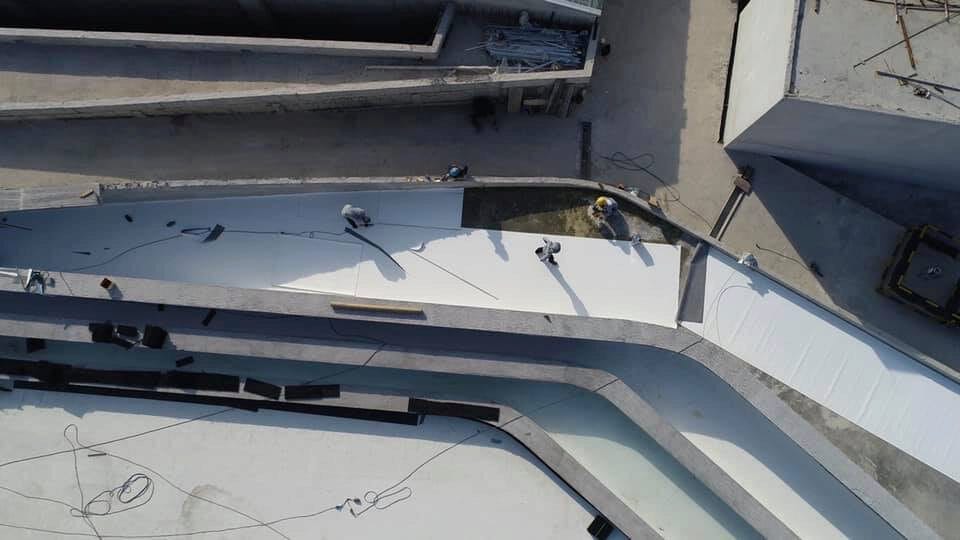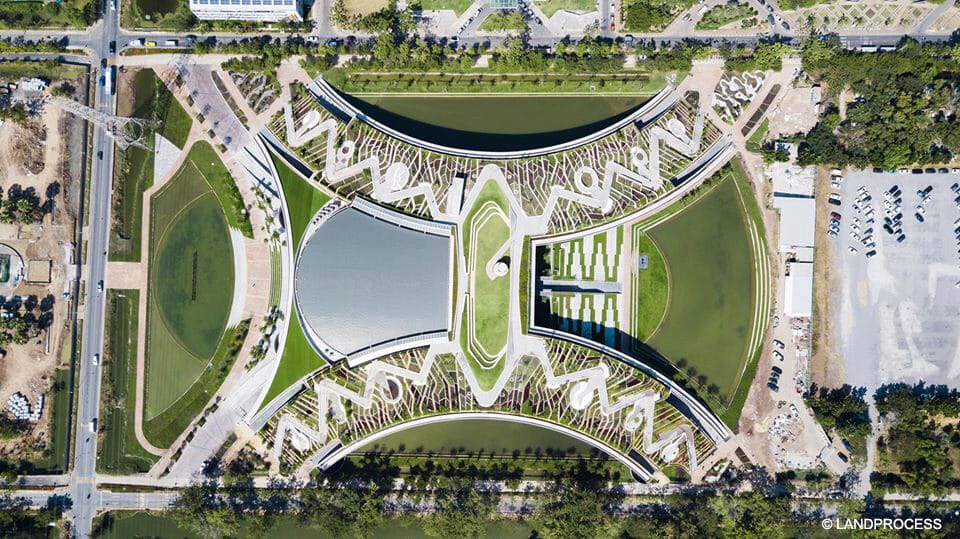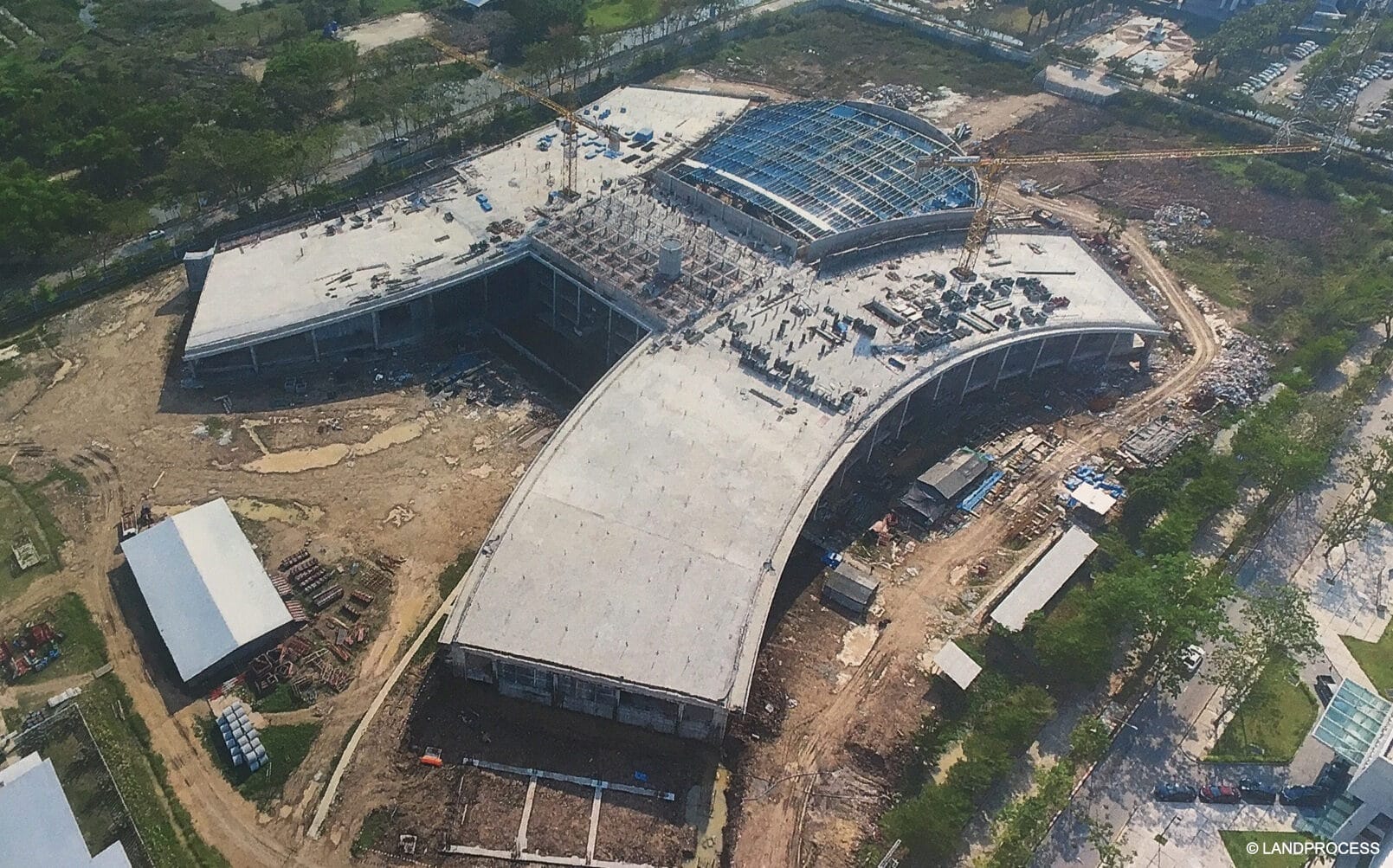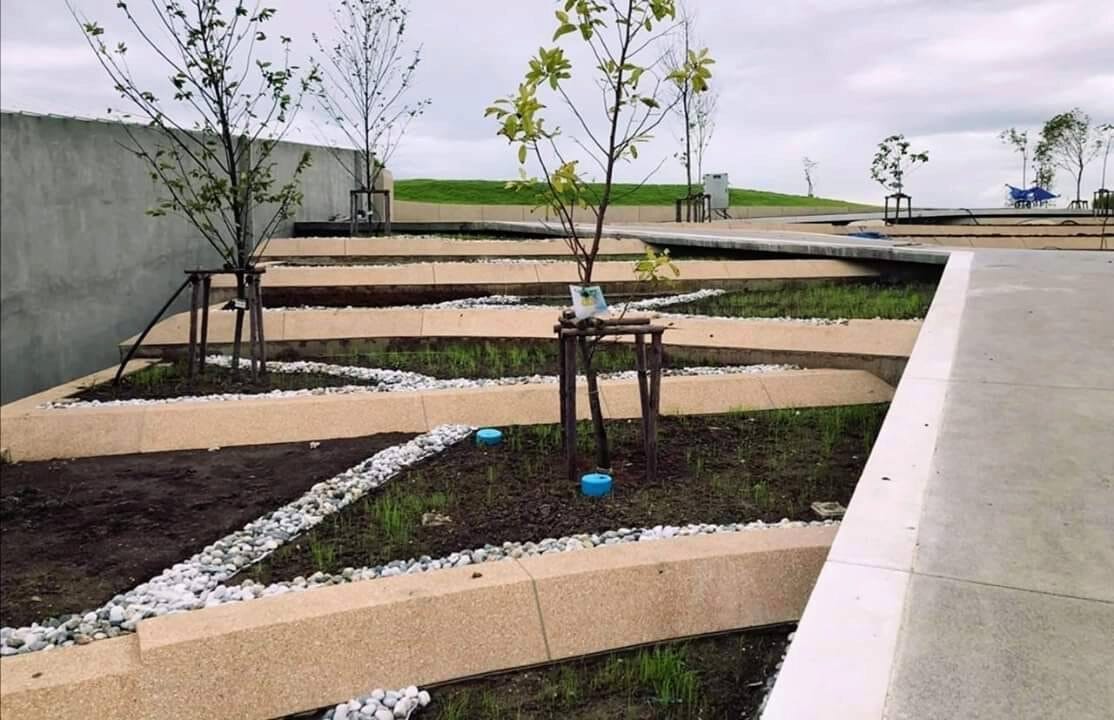Asia's largest urban rooftop farm waterproofed with UltraPly TPO
The Thammasat University is one of oldest academic institutions in Thailand. In 2019, the roof of its new campus in Rangsit, some 40 km from Bangkok, became Asia’s largest urban rooftop farm, with about 7,000 m² destined to organic farming.
| Project ID | |
|---|---|
| Location | Rangsit, Thailand |
| Application | Green roofs |
| Project type | New build |
| Building type | Educational building |
| Surface | 14,000 m² |
| Products | Elevate UltraPly TPO 1.1 mm (white) |
| System | Ballasted |
Green roofs can play an important part in helping to curb some of the impacts of climate change, such as frequent flooding, which is a real issue in Bangkok. Climate experts predict that the city will sink by more than 1 cm per year and that nearly 40% of the Thai capital may become flooded by 2030 due to the increased rainfall. The creation of climate-resilient green spaces is therefore key to achieve better stormwater management, specially in a city with very few ground level green spaces.
"Rooftops are usually under-utilised, but they can become green spaces that reduce the urban heat-island effect, the environmental impacts of buildings and land use, and can also feed people," says Kotchakorn Voraakhom, chief executive and founder of Landprocess, the landscape architecture firm behind the Thammasat University Rooftop Farm (TURF) project.
The H-shape of the Rangsit campus building gives the green roof its "mountain" look. Evoking the traditional rice terraces in northern Thailand, the TURF’s cascading levels slow down run-off rainwater and allow it to be harvested and stored in four retention ponds. This water is then used to irrigate the crops of the farm. The green roof also filters rainwater naturally through several layers of plants and soil before it leaves the site and reaches residential water sources and marine ecosystems.
Elevate’s UltraPly TPO thermoplastic membrane was chosen to waterproof the roof of this iconic building. Its excellent weathering performance and ability to withstand very high and very low temperatures make it a very durable waterproofing solution. The membrane also provided an excellent base for the roof garden. UltraPly TPO has successfully passed stringent root penetration resistance tests, such as the EN 13948 standard and the FLL test from the German Landscape Research, Development and Construction Society.
Quality installation, carried out by local Elevate partner Zillion Innovation, was also key, as there was a lot of detailing to be done round curbs, plinths and planter boxes.
